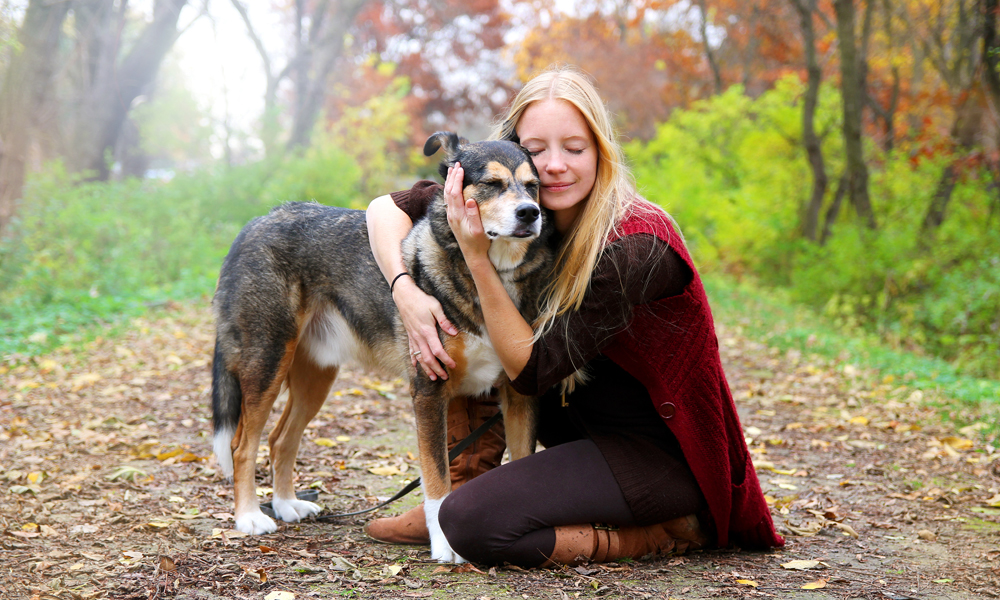Ever consider adopting a senior dog, which is a canine that’s 7 years or older? As people eagerly take home available puppies and young adult dogs from shelters and rescues, senior dogs tend to get overlooked and left behind. Maybe these pet parents don’t want to get their hearts broken. They picture a pile of vet bills and a tearful farewell. But if you take in a senior dog, you’ll save a life, give a good dog a home and give him a second chance. It’s never too late for a second chance, right?
It takes a special person to care for a senior dog. You could be one of them.
Why are senior dogs available for adoption?
Circumstances vary, but it’s not uncommon for a senior dog to come from a loving home. It’s just that their human’s life took a left turn, and now they’re available for adoption.
- Pet parents die. People also move, get deployed, get married, take on new responsibilities and experience other big life changes.
- They no longer can care for the dog as a result of the life changes.
- A friend or family member is unable to take in the dog, so the pet gets surrendered to a shelter.
These are the most common reasons why dogs and cats get re-homed, according to survey results published in the Open Journal of Animal Sciences:
- 46% of respondents cited pet problems, which includes aggression, destruction and health problems the pet parent couldn’t handle.
- 27% were surrendered because of family problems. Perhaps a family member was in poor health or was allergic to the pet.
- 18% cited housing issues, where a landlord didn’t allow pets or there wasn’t enough space.
While we all hope people don’t take pet parenthood lightly, life does happen and it can leave people with tough choices. Sometimes, it is best for the dog to go to a house where it can get the love and attention it richly deserves!
Benefits of adopting a senior dog
When it’s time to adopt a pet, most people either think about getting a puppy or a younger dog. That’s understandable, because if you’re going to have a best friend, you want to spend as much time as possible with them, right? But there are many reasons why adopting a senior dog can be a great arrangement, both for the dog and the human.
For the dog, it’s self-explanatory: They get to live the rest of their years in a loving home. For humans, there are some upsides worth thinking about, too.
Gain experience with dogs
Starting with a puppy can feel a lot like learning to swim in the deep end of the pool. If you’re new to life with dogs, an older, settled animal that knows the drill can be a good introduction to canines.
Less mess, less distress
Back to puppies. They’re adorable. But potty training and teething aren’t licked in a day, so puppies can be awfully hard on furniture, shoes and floor coverings. With a senior dog, they’re past that destructive puppy phase, so you can focus on hanging out together.
Older dogs have a lot of life to live
A dog is considered a senior at age 7; earlier, if he’s a large breed. Though they may slow down a bit and show signs of aging — gray faces and maybe a bit of joint pain — you still have many years of friendship ahead of you. Especially if you do what you can to optimize his physical and mental well-being:
- Twice-a-year vet visits
- Maintain a healthy weight
- Good nutrition with a high-quality dog diet
- Daily walks along with an activity you enjoy together (hiking, swimming or even running)
- Shared activities that engage body and mind. Have him sniff out treats, play hide and seek, or set up a backyard dog agility course.
- Plenty of love and companionship.
Older dogs have much to learn
Worried that your older dog can’t be trained to follow your house rules? Despite the old saying, you can teach older dogs new tricks. So if your new elder doggo comes home with bad leash manners or you want to keep him off the bed, you haven’t missed the boat — as long he’s cognitively sound, he should still be pretty trainable.
How expensive is a senior dog?
The costs associated with bringing home a senior dog are comparable to that of younger dogs. Some shelters and rescues offer a price break on adoption fees, simply because they have a good dog that’s being overlooked.
But what about the costs of keeping a senior dog? This depends on the care the pet received in the past along with his health. To keep your costs down, remember that you can purchase pet health insurance for older dogs. The policy may exclude certain pre-existing conditions, but it can still be well worth it.
Learn more by checking out the blog post that accompanies this episode of Raising Your Paws podcast, How to Decide to Get Pet Health Insurance or Not.
More than likely, your new pet will need more medical care than a younger pet for a few key reasons:
Dental issues
Dental issues are common in adult dogs older than age three. So if you bring an elder dog into your home, it’s possible he’ll have some needed dental work on the horizon. It will entirely depend on the care he received in the past.
Twice-yearly vet visits
Many veterinarians recommend that dogs older than seven get seen for twice-annual visits. One visit may be dedicated to blood work and a complete checkup, just to get a baseline on your pet’s health. The second visit is a quick check-in to make sure no big changes have shown up in the dog.
Breed-specific health issues
To prepare yourself, do a little homework on the breed-specific problems and ailments of your pooch. Some breeds get frequent ear infections, while others are prone to arthritis in the hips and knees. Make a list of questions so you can talk them through with your vet.
What to know before adopting a senior dog
The key thing before you adopt is to get as much information as possible about your new pet.
Behaviors
As with any dog, learn everything you can about your chosen pooch, so you can understand their needs and personalities. What was their home life like? How do they behave with volunteers and fosters? Have they ever growled or become reactive, or do they seem calm and easygoing? For example, if this otherwise easygoing dog shows food guarding tendencies, then you’ll know to take precautions so no one gets hurt.
Medical history
If you’re looking to adopt a senior dog, it’s especially important to get the background on their medical history, especially when a fair number of older dogs get surrendered because of their health issues. Ideally, your chosen pooch received exceptional veterinary care at the shelter or rescue, so you’ll know what to expect and make a plan to meet their unique needs.
For a deep dive, learn Common health issues in senior dogs that pet parents need to know.
Here’s to new beginnings and a long life!
Giving a senior dog a second chance can be the start of a beautiful friendship. Make the most of it by feeding your best friend a high-quality diet.
You can support your dog’s immunity and boost his natural defenses against aging and disease. Family-owned NutriSource Senior diet contains Good 4 Life with organic selenium yeast that fights oxidative stress and inflammation. It also helps the body fight harmful infection to support a long and healthy life.
Shop local and find NutriSource at your local, independent pet retailer.


